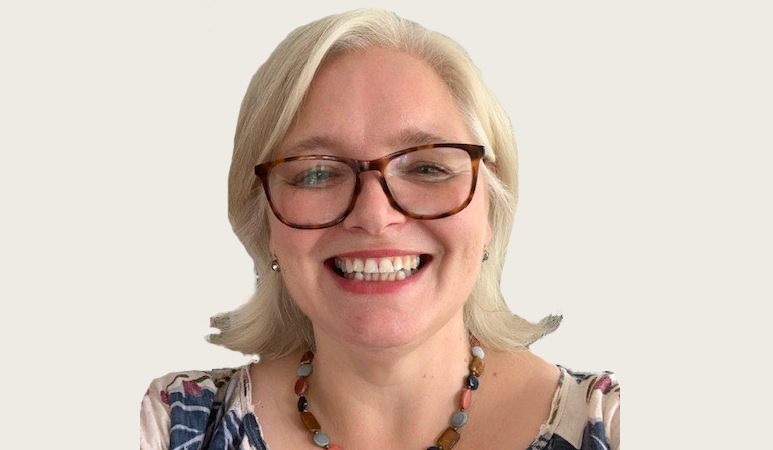As London Met prepares to welcome the first cohort of nursing students we spoke to Dr Julie MacLaren, Head of Nursing, about training nurses and the challenges they are facing.
Date: 15 September 2023
To start off with, we’re keen to know, why do you love nursing?
I always wanted to be a nurse, but when I was young, I didn’t realise what the nursing profession is, what you can do, and where you can go in your career.
I did my nursing degree then worked in general medicine, oncology, and palliative care before I moved into education. As much as I loved being a clinical nurse, education is where I really found myself.
I knew I wanted to do something a little bit different, so I did an MA in Health Education and Health Promotion at what was then Southampton Institute, now Solent University, and I loved it. You see a side people don’t see, and what a difference you can make. I think that’s where the seeds of my interest in social justice came from.
With the introduction of nursing courses at London Met, what did you hope for when this journey first started and what do you hope for going forward?
I was drawn to London Met from the first time I saw the job advert for Head of Nursing. The role really speaks to my values, speaks to the nurse I am and the way I think that nursing could move forward.
Many of the things I envisioned are coming into fruition, including a community focused programme, a wide variety of placements both in terms of medical specialities and working locations. Our nurses might work in GP surgeries, FTSE 100 companies as an occupational health nurse, or in prisons.
There's an enormous problem with retention of staff nurses in London. Often nurses move from one trust to another, but struggle to sustain a long career in London because it's too expensive. Part of our solution is to train people who already live in London, who are already settled. That's not to say we don't have applicants from anywhere and everywhere, but this year we’re focusing on Home (UK) students.
You mentioned some of the challenges faced in nursing, especially in London – retaining staff, work/life balance. How will your nursing courses tackle these issues?
We are working in partnership with five different NHS Trusts and offering placements for our students, so they get to see upfront what our students are like and the skills they will have learned on our course.
One of our major aims is to support students throughout the programme so they don't burn out. Also, student nurses finish their training, and they're ready to take on the excitement of that new venture, but they may not have the skills and resilience to draw upon when facing difficult situations, so this was important to me to have something in place. We will have occupational health resources for nurses throughout the programme, to help provide the tools to draw upon and to give them that extra resilience. Our nurses will know how to reflect on their practice effectively and how to be assertive.
By building these elements into our programme, we are building the London Met nurse of the future, who is resilient, part of the community and fully equipped to work in any nursing setting once they are qualified.
You talked about partnerships with NHS trusts, and you’ve spoken previously about partnerships in Islington and London. Is it important that the course and London Met gives back to the local community?
The people and organisations we're working with, by and large, are either in our local area or in London, and we’re all passionate about growing a local workforce. We’ve been welcomed with open arms by trusts including East London Foundation Trust, Whittington, Barts Health NHS Trust and Guys and St Thomas’. We are also actively seeking other partnerships in social care, and in areas where nurses work that we don't often send students for placement.
We have a diverse population and diverse community around London Met, and the make-up of the NHS is extremely diverse too, why do you think that's so important?
We need to recruit a nursing workforce that reflects the community in which they practice. We need more people to be able to know the system, and not just the white middle-class population. We need to give everybody the access to the tools to receive the best health care, so we must be advocates.
And finally, what does ‘nursing with social justice at its heart’ mean to you?
I came from a white working-class background, growing up in an estate in South Bristol, where virtually nobody went into higher education – I was the first in my family to go to university.
I didn’t do brilliantly in my A-Levels and got into nursing through clearing, and I've always been very thankful that I was given a chance. We’re going through clearing right now and it gives me so much joy when you tell people that they have a place, it's like you've turned on a switch. It's not how you start, it’s where you're going that matters.
I also see the local population around London Met and I feel a sort of kinship with them, because I know what it's like to grow up in a city and in an area where nobody feels you’re going to achieve much or have any ambition. But people do, and they can achieve their dreams, they really can.
Social justice, for me, means allowing people from a wide range of socio-economic backgrounds fair access to education, at any time in their life they choose to pursue it.

